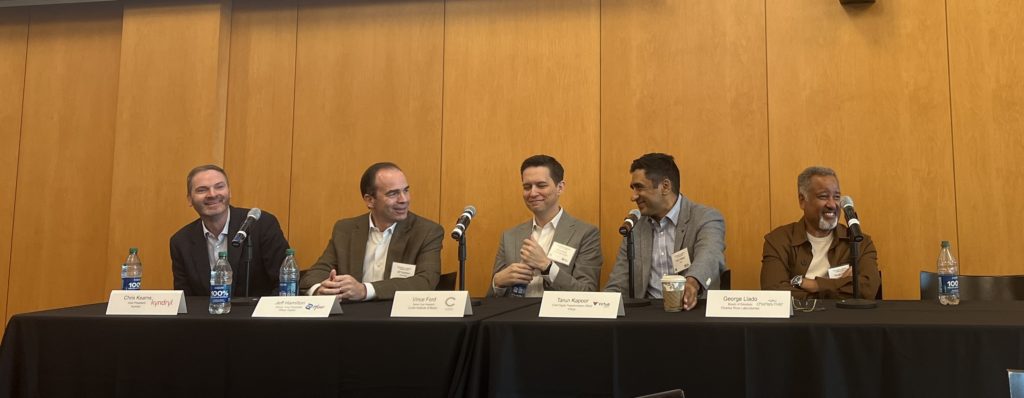
At a panel session during Temple University’s MIS Academic Leadership Conference, Vince Ford, SVP, Curtis Institute, Jeff Hamilton, SVP, Pfizer Digital, Tarun Kapoor, MD, MBA, SVP, Virtua Health, Christopher Kearns, VP, Kyndryl, & George Llado, Board member, Charles River Lab, identified five best practices for increasing and sustaining academic-industry collaboration:
- Industry is interested in collaborating with academia, but often does not know how to start. Academics need to initiate the conversation.
- Talent development is a better first step than complex research projects.
- Talent development at scale such as competitions (e.g., Temple Analytics Challenge, National Cyber Analyst Challenge) can generate immediate value and have a visible impact.
- Collaborative academic-industry research is possible but will need to overcome the time and shorter-term performance pressures faced by industry.
- Multi-layered relationships that include talent, engagement, and research are preferred over one-time initiatives. An advisory board can sustain such relationships (e.g., IBIT Advisory Board).
The Fox School hosted the MIS Academic Leadership Conference (MALC), October 26-28, 2023. MALC is the exclusive forum for MIS academic leaders including Business School Deans, Associate Deans, Department Chairs, Editors, and Program Directors to network with and learn from each other.
Topics included research impact, new directions and opportunities for Undergrad and Master’s programs, academia-industry partnerships, and redefining MBA in the age of AI.
The panel was moderated by Executive Director Munir Mandviwalla and included IBIT board members and partners Ford, Hamilton, Kearns, and Llado.



